
14 minute read
Palmer Public Schools
from Member Update 5-5-23 Ver 1
by NRCSA
Mascot: Tigers
Enrollment: 321 PK-12 students
Advertisement
Locations: Palmer, NE
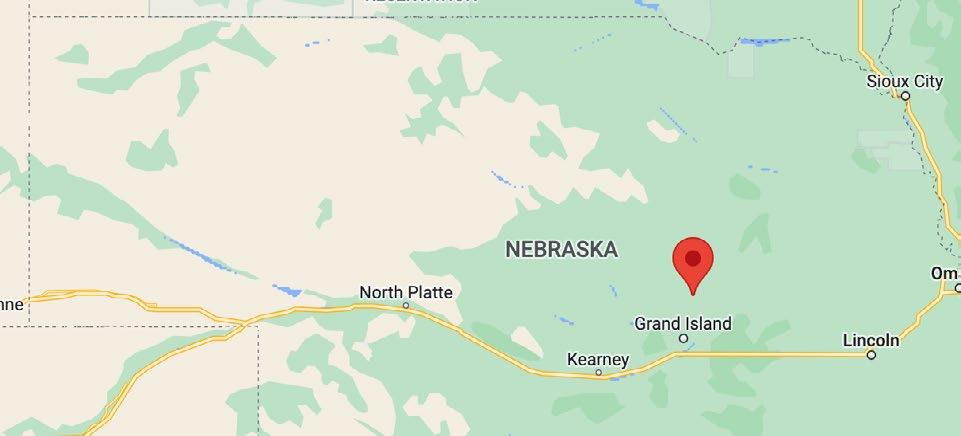
Interesting Fact: RCA and Character Houses
In 2012, Palmer started sending groups of staff members to the Ron Clark Academy (RCA), a highly-acclaimed, nonprofit middle school located in Atlanta, GA. RCA is a demonstration school – a place where visiting educators engage in a vibrant professional development experience by observing best practices in action before participating in hands-on workshops. Palmer has subsequently sent all teachers, administrators, several paras, and board members to professional development at RCA. This PD led to the implementation of character “Houses” in Palmer. All staff, students, board members, and community businesses are inducted into one of four Houses which compete to earn the most points. Students can earn points for their House by demonstrating outstanding character or showing extraordinary citizenship. Points are awarded by staff members and totaled each week. At the end of each quarter and school year, the House with most points earns a reward determined by the RCA Committee.
Superintendent: Dr. Joel Bohlken
Board of Education: JKathy Wolfe, Todd Weller, Brian Friedrichsen, Heather Shotkoski, Daniel Hake, Justin Valasek
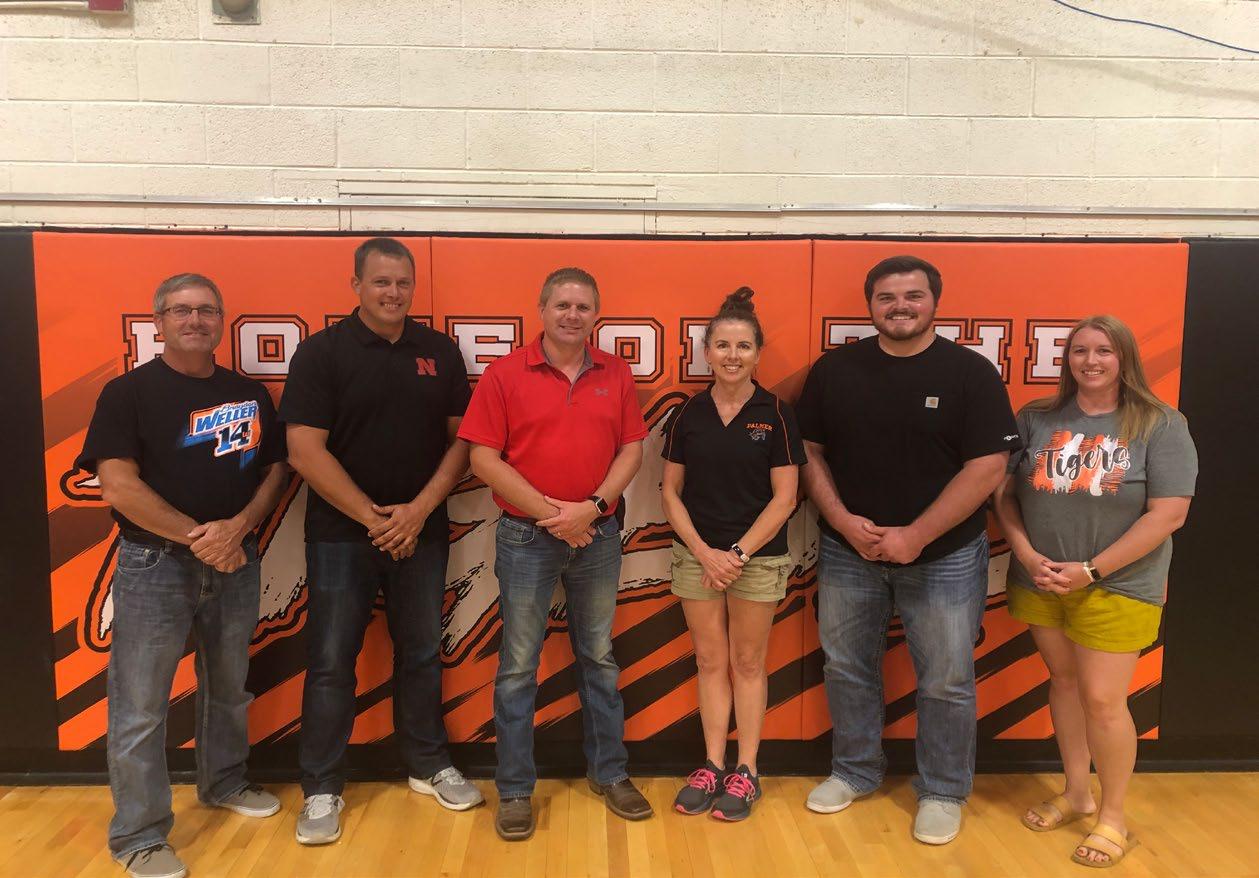
Programs
Fine Arts Programs
Palmer Public Schools is a 2022-23 NebraskARTS Award winner! The NebraskARTS award is given out by Nebraskans for the Arts, a statewide arts advocacy organization. Each year, they honor two Nebraska schools that have supported and encouraged achievement in the media arts, visual arts, dance, music, or theatre. According to the award announcement, Palmer’s commitment to the arts is exemplified by:
• Music is offered EVERY DAY for K-6 students
• Band is the largest participant activity at Palmer Schools
• The band placed 1st and 2nd at Harvest of Harmony in the last two years
The Palmer Drama Team also earned District Runner-up in 2022-23 Play Production. And, we have high participation in art classes and entries in visual arts competitions. The Dance Team earned 2019 State Runner-up.
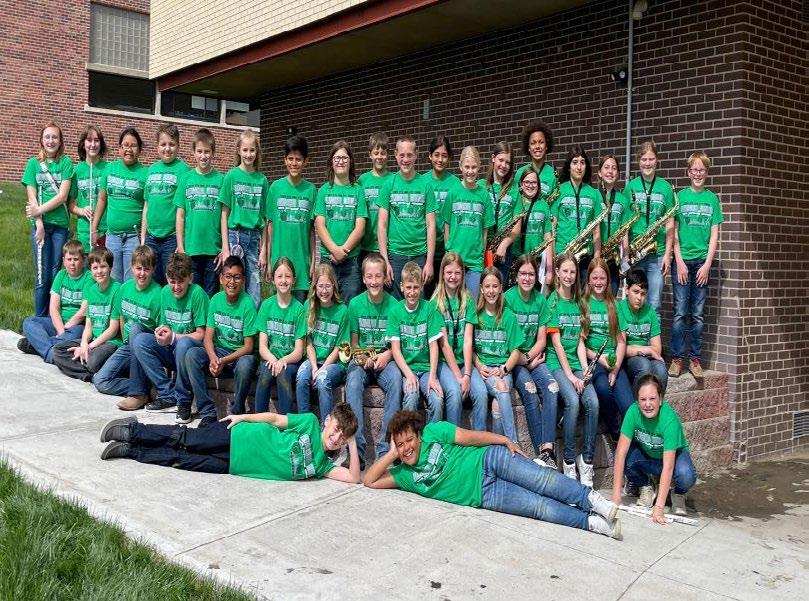
Staff of the Year Awards
Each year, the Nebraska State Education Association takes nominations for numerous awards presented to educators as well as community members. In 2022, four Palmer Education Association members received awards:
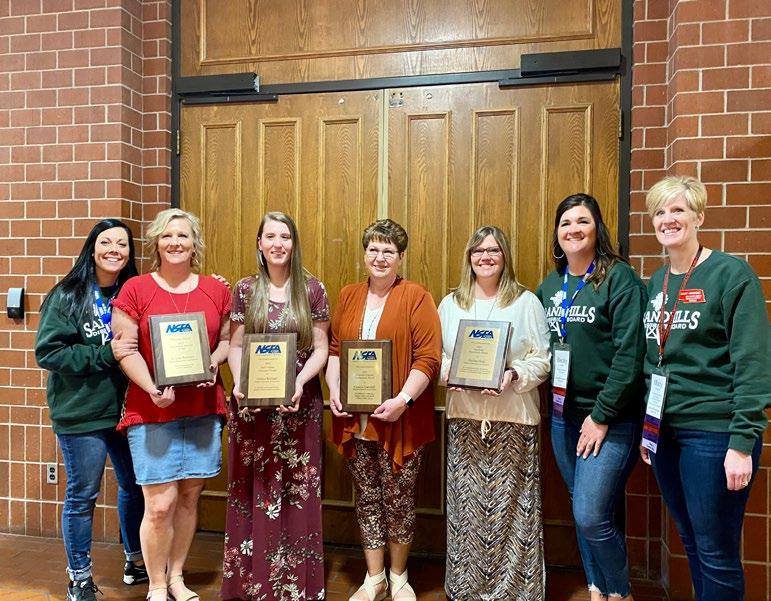
• Community Service Award - Kristin Reimers
• Early Career Educator Award - Juliana Kroeger
• Educational Support Professional Award - Trish Harrahill
• Award for Teaching Excellence - Melissa Kriz
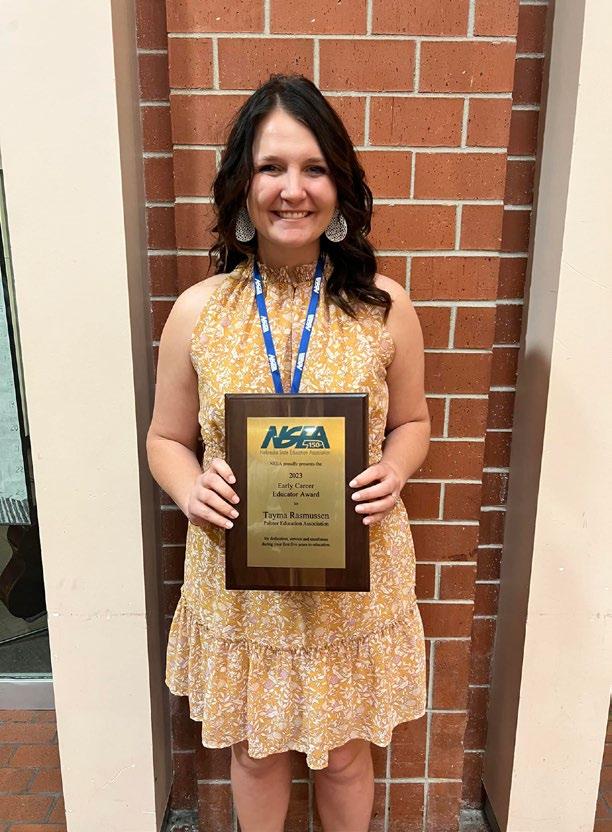
In 2023, the following were nominated for awards. Tayma Rasmussen won her respective award:
• Early Career Educator Award - Tayma Rasmussen
• Educational Support Professional Award - Kim Sullivan
• Award for Teaching Excellence - Kyndsay Herrick
I would encourage districts to consider participating in the Academic Decathlon competition. Academic Decathlon is an activity that is dependent on students of different ability levels. A team is made up of students who are in the Honors (A average), Scholastic (B average), and Varsity (C average) levels. Students may move up, but they may not move down. The combined scores of the students in all 10 competition events are counted, thus each team member is very important. There is a defined course of study in each subject area each year. Subject areas are commonly Math, Language & Literature, Science, Social Science, Economics, Art, and Music which are covered in the Regional competition each year. At the State Competition, Speech, Interview, and Essay are added. There is a “theme” each year that many of the subject areas cover. The theme for 2022-23 was the American Revolution. The theme for 2023-24 will be “Technology and Humanity”. Regional competition takes place in January and State competition takes place in February. The school can decide how to prepare for the competitions. Some schools have teams that have practices in the evenings or after school. Some simply provide the students with materials to study prior to competitions. Other schools offer a class to prepare.
Quiz Bowls are wonderful and fun activities, but they do not have a defined course of study like the Academic Decathlon. I find the Decathlon to be the best academic competition that I have experienced. To me, it is based on true study and learning.
On a personal note, three of my four kids participated in Academic Decathlon through high school and between them they won thousands of dollars in scholarships as they were on teams that had success. I currently serve on the Nebraska Academic Decathlon Board of Directors. I have been very involved with this activity for many years and highly encourage you to consider adding it to your school. A new school can have its enrollment fee waived the first year and may receive free study materials.
If you have any questions or have a staff member who is interested, please feel free to contact me. You could also contact the State Director, Vicki Deniston-Reed at dcthln.denistonreed@gmail.com.
My name is Maria, and I’m a researcher at WestEd, a non-profit educational research and development agency. WestEd is partnering with an organization called Citizen Math on a US Department of Educationfunded study, and I’m reaching out to see whether you’d like to learn more about it and explore whether it would be of interest to some of the schools in the Nebraska Rural Community Schools Association.
Citizen Math provides rigorous math lessons for 6th, 7th, and 8th graders. The lessons help students explore standards-based concepts through relatable real-world issues, building critical thinking, civic-mindedness, and collaboration skills. (Sample lesson topics include: How dangerous is texting and driving? How do municipal fines affect people with different incomes? How much should you trust online ratings?)
An earlier study showed that these lessons helped students deepen their learning and make more lasting connections to math concepts. The lessons were also shown to significantly improve student achievement on the end-of-year state test.
We’re currently enrolling full middle school math teams (6th, 7th, and 8th grade teachers) from rural and urban schools to participate in a two-year, randomized control trial study, beginning August 2023 and lasting for the 2023-24 and 2024-25 school years. More information can be found on the study website: Citizen Math Impact Study, but here are some of the benefits for participating teachers:
• Stipends for participation
• Free training and access to Citizen Math (valued at $300 per classroom) for two years
• Opportunities to network with other teachers enrolled in the study
• A chance to build evidence for the field about how enhancing civic and social-emotional learning in math classes impacts student outcomes
If you think this study might be a good fit, please fill out the form on the study website.
WestED is a non-profit educational research and development agency and they are asking for rural particpation on a U.S. Department of Education Study
The following is from Maria Salciccioli of WestEd:
UNL Tuition Discount & GOLD Grant
We have a new tuition discount program aimed at better serving folks from rural districts who are seeking school leadership degrees (MEd – principalship, EdD – superintendency) or endorsements. The program provides a 15% tuition discount for educators who serve in NRCSA member districts or are in an area classified by NCES as rural or town. We think this is a small but important step toward helping rural schools be intentional about growing their own leaders. If interested, please contact Dr. Nick Pace at nick.pace@ unl.edu
Big Red Leader Website
Big Red Leadership Flyer
In addition, invite your participation in a federal grant application aimed at helping Nebraska school districts. Led by the UNL Department of Educational Administration, the GrowthOriented Leadership Development (GOLD) Project is a collaboration across NCSA, NRCSA, ESUCC, and NDE. Goals include:
• Developing current and future leaders in a growyour-own model
• Strengthening School Leadership
• Improving Principal and Teacher Retention
GOLD Highlights:
• A focus on local, building/district level context, not a top-down, one-size-fits-all approach
• Research-based content aligned with Marzano’s Balanced Leadership and other recent work
• Use of existing professional development structures led by credible leaders and coaches
• No additional costs or duties to ESUs or districts
GOLD Includes:
• Regular, large group professional development for the principal and 2-3 teacher leaders per building
• Small group coaching and facilitation provided by grant-funded coaches
• Application of material presented in sessions to local school improvement priorities and integration with the new NDE Nebraska Teacher and Principal Professional Standards (NTPPS)
• A stipend to participating schools to support implementation of GOLD dimensions and materials
To Learn More: https://cehs.unl.edu/edad/gold-project/
Chadron State College Special Education Parato-Teacher Program Initiative.
Purpose: This “Grow Your Own” Special Education Teacher program is designed to provide school districts with the opportunity to cultivate and participate in the training of their para-professionals who wish to continue their education to become special education teachers.
Who: Any individual who holds a minimum of an Associate’s Degree (or equivalent credit hours) from an accredited higher education institution, and who is employed as a para-professional within a school district. What: Chadron State will provide required course work and enrichment activities via online, face-to-face (via Zoom), and on the job experiential learning, leading to a Bachelor’s in Education Degree, and a Nebraska Teaching Certificate with an endorsement in Special Education (grades PK-12). With administrator input, program course work will be tailored to best fit your district practices and expectations. Each course will be offered in an 8-week format, with 12-13 credit hours to be completed each 16 week semester.
How: Program participants will be advised, monitored, and supported by CSC faculty/staff, and a CSC Education Program liaison is specifically assigned to facilitate their progress. District para-professionals may enter the program at any time in the academic year.
When: once participants reach their senior academic year they will embark on completing their capstone course work, via online and Zoom class sessions. This course work has been pared down considerably with the understanding and assumption that these student teachers will be learning “on-the-job”. For example, one section covers classroom management practices. Clearly, one can argue and attest that these student teacher interns are learning more about managing a classroom from being mentored by veteran teachers within your school, and observing them in action. This is the belief and learning approach embraced during this senior year. However, to ensure and assess concept learning, Chadron State faculty will be meeting with your student teacher cohort twice per week for 1.5 hours, via Zoom conferencing technology.
Graduation: At the completion of this program students/candidates graduate from Chadron State College, and apply for teaching licensure resulting in a valid initial teaching certificate with and endorsement in PK-12 Special Education. Chadron State’s education program in nationally and State accredited. As such, interstate certification reciprocity is not a problem.
Things for your consideration:
1) To qualify for this program participants must hold at least an Associate’s Degree or the equivalent in college credit hours. (CSC will work with those applicants to provide them with the needed coursework leading up to program entry).
2) Districts must agree to maintain para-professional employment throughout the course of the program— including during the student teaching experience.
Please contact Dr. Adam Fette for more program information, at afette@csc.edu.
The UNL Department of Educational Psychology has received a grant from the Swanson Foundation which allows them to offer mental health services to rural schools.
From Dr. Michael Scheel, Chair of the UNL Department of Educational Psychology:
The UNL Department of Educational Psychology would like to offer counseling and psychological services, as well as consultation services to the schools and communities of Southeast Nebraska. We run a mental health counseling and therapy clinic and we are offering counseling and consultation services to teachers, administrators, students, and community members of Southeast Nebraska. Services will be provided through remote and confidential means (i.e., Zoom conferencing). We are hoping that schools, families, and individuals contact us to schedule an appointment for a telehealth counseling or consultation session.
We have recently learned that a donor will support our work with individuals living in rural Southeast NE by paying all fees for services. Thus, whoever seeks out our services will simply have to indicate they live in Southeast Nebraska, and any services we provide will be paid for through the UNL Foundation. Individual, couple, and family counseling will be provided without financial expense. Additionally, we can provide teachers, school administrators, school counselors, and school social workers consultation services for students of their schools without charge.
We are very excited to enter a partnership with schools and communities of SE Nebraska to promote mental health and well-being. We are aware of the mental health counseling disparities that exist in Nebraska rural areas, and our department, our College of Education and Human Sciences, and UNL are highly interested in offering our expertise and resources with the goal of enhancing the well-being of SE Nebraska individuals, schools, and communities. We are a group comprised of licensed psychologists and psychology graduate students who regularly provide services through our clinic to the Lincoln community. We are seeking to reach beyond Lincoln to connect more with surrounding rural areas. We also are acutely aware of the importance of addressing mental health concerns right now as we all are experiencing the stress of going through the COVID-19 pandemic.
The Counseling and School Psychology Clinic is a training clinic in which graduate students in counseling and school psychology work with clients under the supervision of licensed psychologists. Services are available to all on a sliding scale. For clients from SE Nebraska communities, services will be paid for through UNL Foundation funds supplied by a donor who cares deeply about the welfare of schools and communities in SE Nebraska. Counseling services are offered to improve well-being, improve academic and behavioral issues, stabilize mood, manage stress, and improve life-adjustment issues.
For more information, please visit our clinic website: https://cehs.unl.edu/edpsych/clinic/
Board of Education meeting visits.
Beginning in December, 2019, I started attending Board of Education meetings in member school districts. Since then, I have attended 79 such meetings. I am scheduled to attend Board meetings for Meridian and Dorchester on Monday, May 15. I have really enjoyed this and am willing to attend Board meetings when I can. I take a few minutes to cover NRCSA news and offerings, as well as some legislative news. When I am going to be in a specific area on Board meeting days I may send out a notice to near-by Superintendents to make an offer to visit. I’d like to be able to schedule two or three in the same evening if I can.
If you would be interested in me attending a future Board meeting, please contact me to start the arrangements. I would also be willing to “attend” your Board meetings via Zoom if you preferred. I would still only do one at a time but would be able to do several in the same evening. Let me know and we will try to make the connection.
A common theme from some of the decision makers on the state level is that “out of control” local spending is to blame for the property tax problem. NRCSA, along with many other educational entities, maintains that we do not have a school spending issue, but instead have a school funding issue. Attached are two reports, one from NRCSA, the other from Open Sky, that discuss the myth of “out of control” school spending. It is my hope that administrators and Board of Education members will read, then use these reports to counter those claims. When you do please tell your district’s story as that is the most powerful way to get this message across.
NRCSA Spending Study
A Look at School Spending in NE from Open Sky
We urge you to consider making use of the NRCSA Partner OneCard as a tool for you in managing school expenditures, both large and small. Certainly, the card can help reduce/eliminate any issues relative to unverified cash expenditures. You decide who uses it, can get cards for each of those users, keep all cards wherever you wish, determine the amount to load it with, and how long the time frame of use is. It is a terrific management tool and clearly identifies each expenditure/name/date/amount. Whether small purchases or very large purchases, the card is a terrific tool. NRCSA owns the state contract, so liability for misuse falls to NRCSA, not the district user. We have only had three circumstances of fraud and all three have been the theft of the card number information, not any district employee misuse. Great job by all participating districts in protecting the card and program! Don’t forget, the NRCSA rebate from the transaction fee paid by businesses that choose to accept plastic is used for scholarship, awards, and special needs. For 2021-22, the rebate was over $23,000 to NRCSA, showing that use is increasing, and large purchases are being included. WIN, WIN, WIN!
If you are considering joining the program and need more information, please contact Jack Moles (jmoles@ nrcsa.net) or Jeff Bundy (jbundy@nrcsa.net).
Davenport (interim), Educational Service Unit #16, Lakeview Community Schools, Louisville Public Schools, Medicine Valley Public Schools, North Bend Central Public Schools, Randolph Public Schools, Ravenna Public Schools, South Central Unified #5 (interim), Southwest Public Schools, Superior Public Schools (Interim), Tekamah-Herman Public Schools, and Thayer Central Public Schools in their searches for their next Superintendents. NRCSA was also selected to assist the NSAA Board of Directors in its search for the next Executive Director of the NSAA. We also assisted Thayer Central on a Principal search.
If your district finds a need to locate your next school leader, please be sure to keep the NRCSA Superintendent Search Service in mind. For more information you can contact Executive Director Jack Moles at jmoles@ nrcsa.net or by phone at 402-335-7732.
It is a common practice for many Boards of Education and the Superintendent to conduct short and long-term planning. NRCSA does provide a quality service using experienced consultants. If you are interested in more information, please contact Executive Director Jack Moles.
SUPERINTENDENT SEARCH & PLANNING
NRCSA has had a very successful year this year in assisting 14 Boards of Education in choosing their next Superintendent of Schools. This year we have been asked to assist Ansley Public Schools, Bruning-
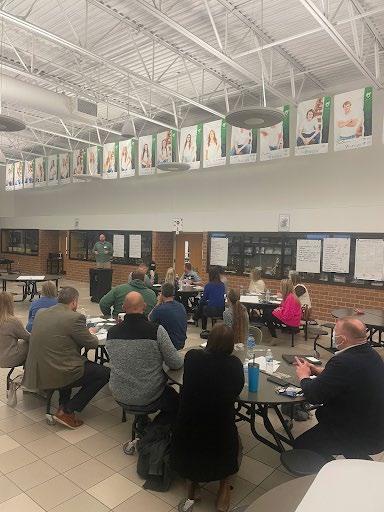
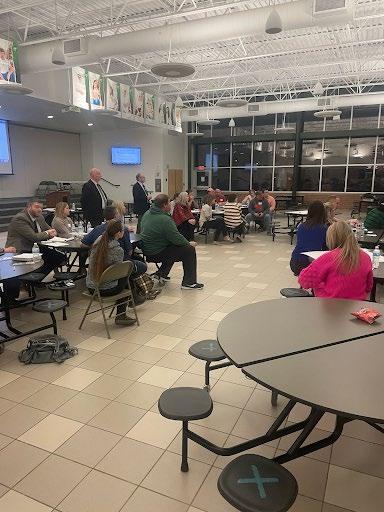
NRCSA Search Service Experience
NRCSA Planning Support Brochure
From Dr. Jon Habben; NRCSA Federal Liaison:

I felt the National Rural Education Advisory Consortium Legislative Agenda Conference was very good. On Monday, we had panels and Q/A sessions with representatives of the Department of Education, as well as policy and budget experts. On Tuesday, I set up meetings for Jack and I with Third District Congressman Adrian Smith and Education Staff for Congressman Mike Flood and Senator Deb Fischer during our allotted time.
One notable presenter on Monday was Julia (Rural Outreach for DofEd) who described how 40 persons were in her rural education support team. This position had been left vacant for three years and filling it was a good response to NREA and other national rural education associations pushing for a rural office in the DofEd the last several years. More next month on all of that.
Anyway, we hope to have more rural state associations that already belong to NREA (43) to step up and join the effort done by NREAC, the Legislative lobbying arm of NREA. NRCSA has been an associate member since the beginning of NREAC nearly 20 years ago, and a full partner starting with Dr. Habben’s first year. More to come on that, as well as future lobbying decisions.
Thanks, Jon
NREAC Legislative Agenda
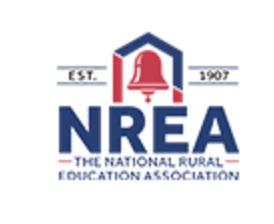
From the NREA students across the country received this award. Awardees can include this recognition on their college applications to stand out to colleges. To be eligible, students must attend high school in a rural or small town area, have a GPA or 3.5 or higher, and take eligible administrations of the PSAT/NMSQT, PSAT 10, or AP Exams. Students can apply by June 12 on BigFuture and will be notified by September if they are awarded recognition. For more details, visit bigfuture.org/ recognition.
College Board National Rural and Small Town Recognition Program: Applications Due June 12. Encourage your sophomore and junior students to apply to College Board’s National Rural and Small Town Recognition Program! This program recognizes the hard work and academic achievements of students in rural areas and small towns. Last year, nearly 20,000





